. . . .is fortunately not what I had to experience. . . . Gotcha!. .
I had tried to write the other half of this cliffhanging blog in an internet café in Bangalore, got almost all the way through, then the network went down, so I am writing from the safety of a friend's apartment in Bangalore now, to be saved to a cd and uploaded later
. Apologies for the delay, but a little suspense now and then-is treasured by the wisest men. .. . .
When we last left our intrepid travelers they were still sitting on a stone bench in the shade beneath the Karnatakan sun, with Rocinante glinting on the other side of the busy highway.
The officer in charge of the branch station, the only officer there had taken my papers, Xeroxes of passport and international license, indoors, and from time to time the radio would blurt out something in rapid fire Kannada (the "mother tongue" of Karnataka) sometimes sounding bored, sometimes agitated, and from time to time our man would respond in an equally unpredictable tone.
With no idea of what was to come, I thought the best path would be to be friendly, to be myself and relax, perhaps to break the ice as well as a way to pass the time.
The two workmen who had aided the policeman in his stopping of the bike, holding out coconut shells monty-python style in lieu of a bamboo staff such as the cop had were mixing cement in front of us in the middle of the drive, preparing to put up signs on the median
. Advertising signs are everywhere here, these were for India mobile, the biggest cell provider, and even the police outpost was sponsored by a Mysore hotel, and said so on the police outpost sign.
Not one to watch others work without feeling at least a slight desire to join, I went out and helped them hold the sign straight as they backfilled the hole with stones and dirt in preparation for the cement "pour" which consisted of putting piles of concrete on burlap bags, grabbing up the four corners, and hauling the bundles out to be dumped in the hole.
Our kindly law-enforcement officer came out and barked at the men a bit, allowed me to help, and he and I conferred much on whether the angle of the sign was correct, and whether it was plumb. He asked us if we wanted some water and motioned us in to sit in the relative cool of the station.
Also he asked if we had eaten yet. Having spent a lazy morning in the hotel Guptha drinking coffee and eating puri baji, we were set in that department, so he brought out his own lunch, and did insist we try a sort of bread/biscuit that his wife had made for him
. It was a sort of a crunchy thing, like a thick potato chip made from rice flour. The officer was quite proud of his wife and his two children, as we found out later, communicating through his sparse English, Linda's even sparser Hindi, my microscopic Kannada, and of course the inescapable hand gestures and sign language.
He was a father, with a daughter on the way to university, and a son of ten years, also a good student. When he spoke of his wife, he had the dreamy and far away look of a man who was still in love after all these years. He was kind, and curious (of course asking all the requisite questions that Indians love to ask foreigners), and had an honest face.
As for myself, I was still quite worried about the woman, but our man said that the injury was minor, and she was "complaining" a bit, so there had to be made a police report. We were also waiting for another officer to come in from town. "To make report?" I asked. "Yes, yes, making report, soon will come, traffic. . "
So we passed the time making conversation with officer #293 of the Somnathpur branch of the Mysore Highway police
. .
Some three and a half hours later, another officer finally showed up, riding the bus. He asked for my keys, which I said were still in the ignition, and the two then hurried us down to the road, flagging down a passing local bus. "You go now, bus stand (station)," they told us, yelled something at the bus attendant, and ushered us on board, to the stares of the surprised-looking riders.
The thoughts began on the ride. All of our belongings were with Rocinante, and to suddenly leave them was kind of worrisome. Nightmare visions of all those bad travel stories that people tell you (usually from those who have not really traveled) danced in our heads. Linda thought that we should never have gotten on that bus in the first place, and I began to agree, but when we tried to get off, the bus lady whistled at us and kept us in place. "Bus stand," she repeated.
We could not really see why they would put us on the bus and keep the cycle at the outpost, sending us into an unknown town for an unknown reason, but sometimes when faced with danger, real or imagined, one must let go of the desire for control and trust that things will turn out
. With all of our possessions on the bike, we also had to let go, somewhat, to the attachment of material things as well. Relax and let it happen, Go with the flow, relinquish control, a meditative attitude toward a seemingly problematic situation. . .
Arriving at the Bus stand in the main town, we exited the bus, and saw no police officers waiting, and once again the thought arose that we might just be getting burned, but after asking around a bit, to our dubious relief we heard a whistle, and saw a white-shirted Highway policeman motioning us toward a waiting rickshaw.
The policeman was quite nice, of course running down through the usual questions asked by curious Indians, and I asked him again about the woman and her condition. "Minor, injury minor," he told me, and added again, "she is complaining."
Pulling into the police station I was quite happy to see our old friend Rocinante parked among the crashed, impounded, and just plain parked vehicles, our bags still loaded, and seemingly unmolested. Apparently we had had to go to the main station in town, and were waiting until they could spare a man to ride the bike to the station, a precaution quite sensible under the circumstances, because not knowing us at all, we could have just driven off, or worse, gotten lost in the tiny streets of the town trying to find the station.
Our escorting officer saluted all the superiors on the way, and led us inside, saluting a bit longer to the man and woman in uniform sitting at a long table in front of a row of (**gulp**)barred cells.
The woman asked us to come in and sit across the table from her and her equally high-ranking companion. Her English was quite good, and I related the story to her in an animated and expressive fashion, explaining that I did all I could to avoid the woman and to alert her our oncoming, yet the crossing woman failed to even turn one eye in our direction. I told about how I skidded and swerved, and described how Linda's bag grazed her leg on the way by, how they told us to drive on, all in great detail. The woman officer took all this down in the Malayalam script they use here, and explained that the woman had been taken to the hospital, as she was "complaining," but the injury was minor, and I should not worry. I showed her all the registration and insurance papers I had, everything in order, and stated that I would pay any hospital bills incurred.
The report taken, and my concern for the health of the accident victim expressed with slightly moist eyes on my part, the always one-step-ahead Linda brought bottled water from the small shack/shop at the edge of the police station grounds. Hydration helped, though I still had some concern for the woman, I am the type that will slow and swerve to avoid hitting even a lizard or a toad, or any other animal for that matter, and of course, being the first human I have ever hit that is quite a big animal.
My escort officer was sent for again, and leaving Linda in the care of the police at the station, setting off for the hospital with the officer, who was friendly and with some decent English.
A small-town Indian hospital is like something out of a scary movie, or maybe "one flew over the cuckoo's nest" or some such. Dark and dingy, and looking like it was built in the forties and unchanged since then, with the same equipment even, I was led down the hall to the end where there were parked a number of gurneys, overused and having seen better days.
The accident victim was lying, seemingly asleep, with an IV in her arm. I think the IV was a sedative-perhaps she had been complaining a bit too much. . The officer lifted her sari a bit and showed me a crude-looking bandage around her shin below the knee, her leg looked good and straight ( I have definitely seen a few broken legs in my time) and she had no other injury.
Led into the doctor's office with the officer interpreting, the doctor said the X-ray was perfectly normal, nothing broken, no problems. What a relief. I still feel bad for the woman, who had to go through a lot, though probably having to spend time in a hospital in that town would seem scarier than the accident itself.
Back at the station I was led into the Big Man's office, the district subcommander, who had the report in front of him, and was saluted by everyone. A man was outside the office, and yelled something at the subcommander who shooed him away in English, saying "If you want to settle that, you do so outside the station." This was the man I had seen at the hospital attending to the woman, ostensibly her husband.
The police let us go after a conference with the husband, a well-dressed man acting as his advocate, and themselves. The man wanted us to give him 3000 rupees, though the medical bills were not more than a couple of hundred. I thought this a little steep, though I felt for him and his wife, it was pretty clear that he was trying to take a little advantage of the situation. I countered him with 2000, which is still a sizeable sum when one is living Indian-style, and since the police were out of it (with none of the legendary baksheesh asking), we were released from any police action and had to do the negotiation outside the gates, of course with a crowd gathered to watch the whole thing.
I had become a little annoyed with the whole money thing by then, I had made a very generous offer, and pulled out my book, handwriting a release form for all to sign, with witnesses, and said that was my final offer, and if he still held out for more he could go to my insurance company and try to get it out of them. This is why one needs to have valid papers. The man gave in, signed my paper, and smiled as he put the cash in his front pocket. He had hit the lottery today, and I didn't mind paying for the bills and some extra for pain and suffering, but I'll be damned if I will let someone try to take advantage of my genuine concern for the well being of an accident victim (even if it was a true accident, as ruled by the police, one of whom had witnessed the whole original incident), by trying to threaten me with some Indian lawsuit when I am legally insured.
So, free at last, and quite drained from the whole ordeal, we drove the 25 km back to Mysore with the sun setting in the western sky. Back to the Hotel Guptha, a good meal, and another attempt to reach Bangalore the following morning.
Three days in an Indian prison cell. . . .
Friday, May 19, 2006
 Mysore, India
Mysore, India
Other Entries
-
30The long road to Hampi: part 2
Apr 2425 days prior Hampi, Karnataka, Indiaphoto_camera5videocam 0comment 0
Hampi, Karnataka, Indiaphoto_camera5videocam 0comment 0 -
31Hampi part 1
Apr 2524 days prior Hampi, Indiaphoto_camera5videocam 0comment 0
Hampi, Indiaphoto_camera5videocam 0comment 0 -
32Hampi part 2, Hampi Magic
Apr 2524 days prior Hampi, Karnataka, Indiaphoto_camera5videocam 0comment 0
Hampi, Karnataka, Indiaphoto_camera5videocam 0comment 0 -
33Hampi part 3, caves and musical stones
Apr 2524 days prior Hampi, Indiaphoto_camera5videocam 0comment 0
Hampi, Indiaphoto_camera5videocam 0comment 0 -
34Hampi part 4, temples and coracles
Apr 2623 days prior Hampi, Indiaphoto_camera5videocam 0comment 0
Hampi, Indiaphoto_camera5videocam 0comment 0 -
35Hampi part 5, Hanuman, the monkey king.
Apr 2722 days prior Hampi, Karnataka, Indiaphoto_camera5videocam 0comment 0
Hampi, Karnataka, Indiaphoto_camera5videocam 0comment 0 -
36Hampi part 6, Kiran and the plantation
Apr 2821 days prior Hampi, Indiaphoto_camera5videocam 0comment 0
Hampi, Indiaphoto_camera5videocam 0comment 0 -
37The way to Mysore. .
May 0118 days prior Mysore, Indiaphoto_camera5videocam 0comment 0
Mysore, Indiaphoto_camera5videocam 0comment 0 -
38Mysore.
May 0217 days prior Mysore, Indiaphoto_camera5videocam 0comment 0
Mysore, Indiaphoto_camera5videocam 0comment 0 -
39Oooty and beyond.
May 0514 days prior Ooty, Tamil Nadu, Indiaphoto_camera5videocam 0comment 0
Ooty, Tamil Nadu, Indiaphoto_camera5videocam 0comment 0 -
40Much ado about Mirayoor.
May 0613 days prior Mirayoor, Kerala, Indiaphoto_camera5videocam 0comment 0
Mirayoor, Kerala, Indiaphoto_camera5videocam 0comment 0 -
41Mirayoor, and John.
May 0712 days prior Mirayoor., Indiaphoto_camera5videocam 0comment 0
Mirayoor., Indiaphoto_camera5videocam 0comment 0 -
42Waterfalls and Tea plantations.
May 0811 days prior Mirayoor, Indiaphoto_camera5videocam 0comment 0
Mirayoor, Indiaphoto_camera5videocam 0comment 0 -
43Munnar at last! And, the elusive Eugene. .
May 0811 days prior Munnar, Kerala, Indiaphoto_camera5videocam 0comment 2
Munnar, Kerala, Indiaphoto_camera5videocam 0comment 2 -
44Another beach town. . .
May 109 days prior Varkalla, India, Indiaphoto_camera5videocam 0comment 0
Varkalla, India, Indiaphoto_camera5videocam 0comment 0 -
45The Misty mountain Hop. .
May 154 days prior Munnar/Marayoor, and beyond. ., Indiaphoto_camera5videocam 0comment 0
Munnar/Marayoor, and beyond. ., Indiaphoto_camera5videocam 0comment 0 -
46Mysore again. .
May 181 day prior Mysore, Indiaphoto_camera5videocam 0comment 0
Mysore, Indiaphoto_camera5videocam 0comment 0 -
47Three days in an Indian prison cell. . . .
May 19 Mysore, Indiaphoto_camera5videocam 0comment 0
Mysore, Indiaphoto_camera5videocam 0comment 0 -
48Bangalore Bangs!
May 223 days later Bangalore, Indiaphoto_camera5videocam 0comment 0
Bangalore, Indiaphoto_camera5videocam 0comment 0 -
49Kottakota 460 km in one day.
May 245 days later Kottakota, Indiaphoto_camera6videocam 0comment 0
Kottakota, Indiaphoto_camera6videocam 0comment 0 -
50Up To Date at last!
May 256 days later Hyderabad, Indiaphoto_camera5videocam 0comment 0
Hyderabad, Indiaphoto_camera5videocam 0comment 0 -
51Rocinante gets a checkup, the parting of the ways.
May 267 days later Hyderabad, Indiaphoto_camera5videocam 0comment 0
Hyderabad, Indiaphoto_camera5videocam 0comment 0 -
52Golconda Fort.
May 278 days later Hyderabad, Indiaphoto_camera5videocam 0comment 0
Hyderabad, Indiaphoto_camera5videocam 0comment 0 -
53Another Land-speed record
May 2910 days later Nagpur, Indiaphoto_camera2videocam 0comment 0
Nagpur, Indiaphoto_camera2videocam 0comment 0 -
54Sagar, and Army Life. .
May 3112 days later Sagar., Indiaphoto_camera0videocam 0comment 0
Sagar., Indiaphoto_camera0videocam 0comment 0 -
55The never-ending heat. .
Jun 0113 days later Jhansi and Agra, Indiaphoto_camera5videocam 0comment 0
Jhansi and Agra, Indiaphoto_camera5videocam 0comment 0 -
56No Taj, but how I became a Rickshaw driver.
Jun 0214 days later Agra, Indiaphoto_camera5videocam 0comment 0
Agra, Indiaphoto_camera5videocam 0comment 0 -
57Seeking Sikhs, and Monsoon Driving.
Jun 0315 days later Ambala, Indiaphoto_camera5videocam 0comment 0
Ambala, Indiaphoto_camera5videocam 0comment 0 -
58On mindfulness.
Jun 0618 days later Pathankot, Indiaphoto_camera7videocam 0comment 2
Pathankot, Indiaphoto_camera7videocam 0comment 2 -
59Hello, Dalai. . .
Jun 1022 days later Dharamshala, Indiaphoto_camera9videocam 0comment 0
Dharamshala, Indiaphoto_camera9videocam 0comment 0 -
60Dharamshala, the story, the life. .
Jun 1123 days later Dharamsala, Indiaphoto_camera4videocam 0comment 0
Dharamsala, Indiaphoto_camera4videocam 0comment 0 -
61Stuck again. . .sort of. .
Jun 1729 days later Dharamshala (Mcleodganj), Indiaphoto_camera3videocam 0comment 0
Dharamshala (Mcleodganj), Indiaphoto_camera3videocam 0comment 0 -
62Papa's got a brand new bag. .
Jun 2133 days later Manali, Indiaphoto_camera5videocam 0comment 0
Manali, Indiaphoto_camera5videocam 0comment 0 -
63More time in Manali
Jun 2537 days later Manali, Himachal Pradesh, Indiaphoto_camera5videocam 0comment 1
Manali, Himachal Pradesh, Indiaphoto_camera5videocam 0comment 1 -
64Rhotang pass.
Jun 2941 days later Somewhere above Manali, Indiaphoto_camera7videocam 0comment 0
Somewhere above Manali, Indiaphoto_camera7videocam 0comment 0 -
65Declaring Independence. .(an essay)
Jul 0547 days later Manali, Indiaphoto_camera4videocam 0comment 1
Manali, Indiaphoto_camera4videocam 0comment 1

 Mysore, India
Mysore, India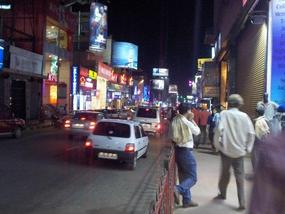
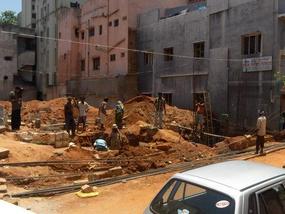
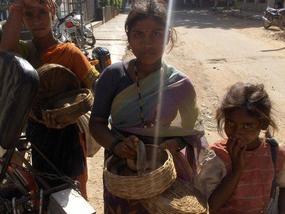
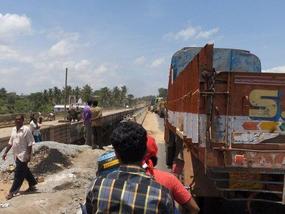
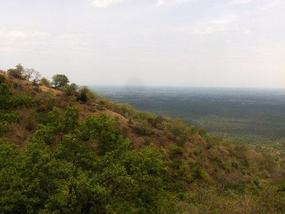

2025-05-22